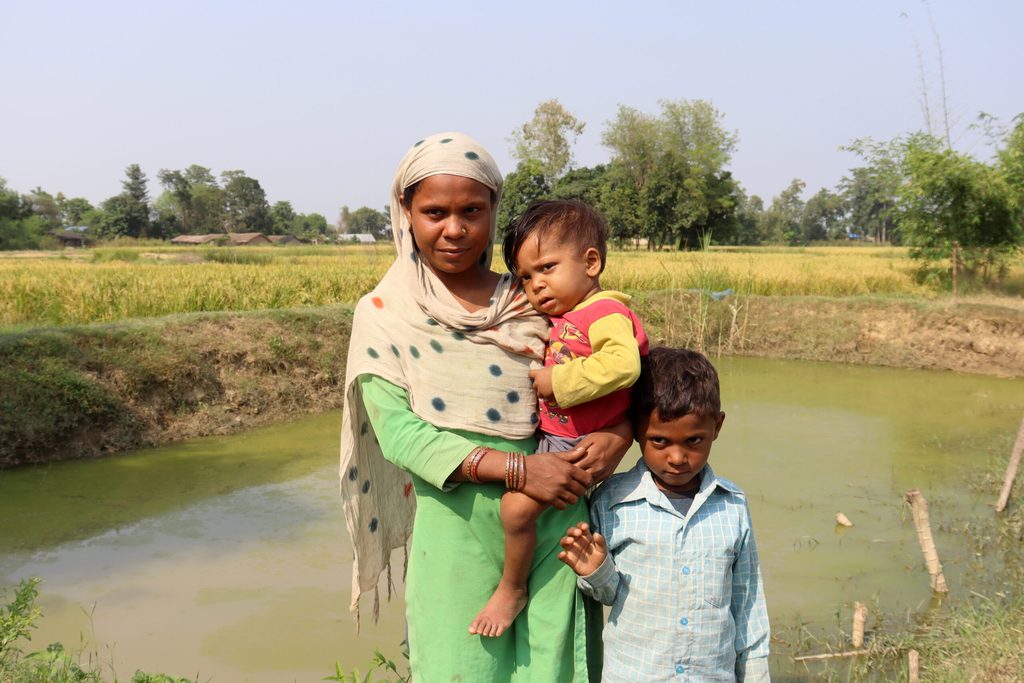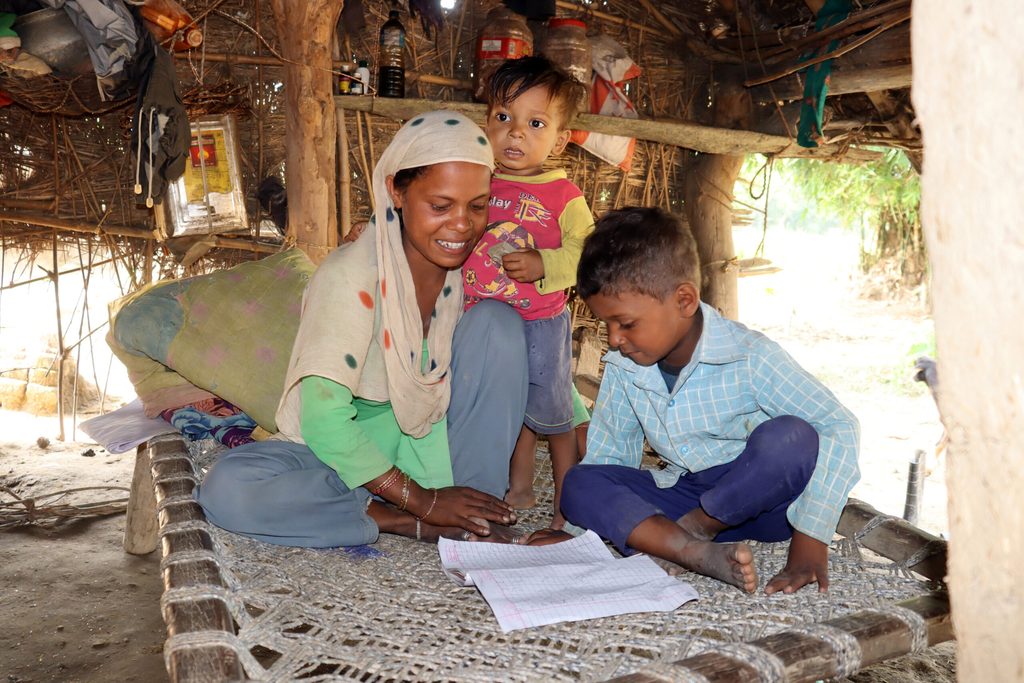Mother gains skills to create better future for her family
Sita is among 120 young people gaining market-relevant technical and vocational skills, business skills, and life skills training to support their businesses and families.

Sita tells us she is excited to start her new life. After recently completing 390 hours of training in livestock rearing and fish farming, she now wants to ensure her young sons have a good education for a better future. “After attending this training, I learned that I could become independent and provide for my children myself.”
Twenty-one-year-old Sita dropped out of school early after completing her primary level education. Growing up in a family of 5 with no regular source of income made life tough for Sita. From an early age, she worked as a seasonal farm worker or domestic maid, often visiting her neighbour’s homes to clean dishes and help with household chores in return for some food to eat or items of clothing.
Early challenges
“Education was never a priority for me or my family. Our only thought was with the rise of the sun, how we were going to fill our empty stomachs,” recalls Sita from Nepal’s Bardiya district. “My parents didn’t earn much. My father sometimes found work as a labourer. My mother used to work for different households helping with the chores.”
“We don’t own any property. We have a small house on land provided by the government. My mother and I used to help the farmers at harvest time so that we could bring some food home. My brothers also used to support my parents. Sometimes, despite trying very hard, it used to be difficult just to find enough food to eat.”
Sita decided to elope at the age of 15 against the wishes of her parents and relatives. Although her family was furious with her, Sita managed to convince them that she was happy with the man she had chosen as her husband and left her family home with the dream of a happy future.
“I thought my life would be better. However, my struggles continued. My husband works as a labourer and is often away working. I now live with my husband’s parents and grandmother. My father-in-law has a horse and cart to transport goods and materials from one place to another,” explains Sita.

Sita quickly fell pregnant and now has children aged 5 and 2 to take care of. Without any way to earn an income for herself, she was reliant on her husband and his family to provide for their needs. So when she heard about a training programme supporting the economic empowerment of young people, she was eager to learn more.
Skills and jobs for young women
After joining the project, Sita was able to decide the technical and vocational skills she wanted to learn and opted for community livestock training with a focus on fish rearing as a few years ago her father-in-law started a fish farm, but with little success.
“I am determined to send my children to a good school to equip them for the future, utilising the skills I have gained.”
Sita
“My father-in-law has been running a small fish pond for the last few years in the backyard of our house so I wanted to learn fish farming skills so we can increase our income. My father-in-law tried his luck, but without any knowledge or equipment, he struggled every day. I hope to support him with the skills that I have learned from the training so that I can continue and expand this business to support my family,” says Sita.
As well as receiving technical training, Sita also learned life skills and how to run a business and has access to mentoring and coaching support. In addition, she is supported with links to cooperatives and government schemes to access further training, employment, startup capital, and subsidies for business.
Sita is hopeful that she will soon receive some startup funds so that she can grow her business, telling us that her main aim is to provide a happy childhood for her young sons.
“I am determined to send my children to a good school to equip them for the future, utilising the skills I have gained. In addition to this, I also want to construct a tin roof home with a few separate rooms for my family members on our own land. I also want my husband to come back home so that we can live and work together,” shares Sita.
“I would like to thank the project for giving me hope. I will work hard to achieve my dream so that I can improve my children’s living conditions.”
About the project
The Promoting Economic Empowerment of Adolescents for Resilient Livelihood (PEARL) project aims to increase the skills and knowledge of young people aged 18-24, especially women from marginalised communities, so they can access paid employment or start their businesses.
With the financial support of the Standard Chartered Foundation (SCF), the project operates in the Bardiya district, Lumbini Province, Nepal. Some 120 young people will receive market-relevant technical and vocational skills, business skills, and life skills training. Around 60 project participants will then be identified to receive additional support to start up their businesses. All participants will have access to mentoring and coaching support.
Categories: Skills and work


